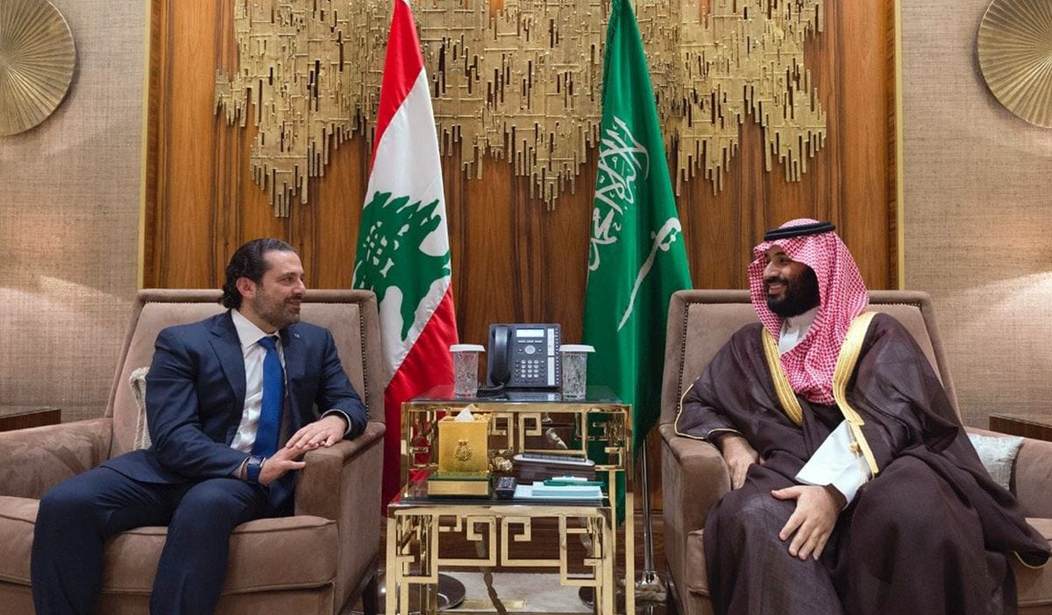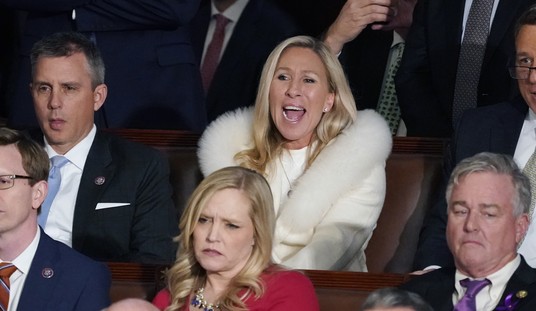The forced resignation of Lebanese Prime Minister Saad Hariri by Saudi Arabia is another indication that the Saudis have made a decision to directly confront Iran and its proxy army Hezbollah.
Hariri was forced out largely because the Saudis didn’t think he was tough enough to deal with Hezbollah. The former prime minister balked at Crown Prince Mohammed bin Salman’s (known as MBS) desire that rather than accede to the terrorists’ slow-motion takeover of Lebanon, Hariri should punch back.
But Hariri knows that any pushback against Hezbollah will likely trigger a counter-reaction that could lead to a civil war. No doubt another reason Hariri refused was that he values his own life and threats against it had been on the rise since he took the prime minister’s job earlier this year.
The Saudis don’t care if Lebanon is forced to endure another tragedy like the civil war that was fought between 1975 and 1992.
Reuters reports, “Multiple Lebanese sources say Riyadh hopes to replace Saad Hariri with his older brother Bahaa as Lebanon’s top Sunni politician. Bahaa is believed to be in Saudi Arabia and members of the Hariri family have been asked to travel there to pledge allegiance to him, but have refused, the sources say.”
If Bahaa is named Sunni leader, he would almost certainly succeed his brother as prime minister. He is seen as being tougher and less willing to compromise than Saad, which may be exactly what Saudi Arabia is looking for.
A Lebanese civil war would keep Hezbollah distracted and engaged as they would need to protect their base of operations in Lebanon. And with the terrorists riding high as a result of their perceived strength demonstrated in Syria, it wouldn’t hurt to take them down a peg or two.
But the Saudis have much bigger fish to fry than tiny Lebanon. They are seeking nothing less than a confrontation with Iran across the Middle East. With war or without it, the Saudis will solve their Iranian problem. And they’ll do it with the help of the U.S. and other Western nations.
Raghida Dergham writing at Arab News:
What will happen now that the strategy of US President Donald Trump on Iran and its proxies has finally converged with Saudi strategy, which has decided that Lebanon’s Hezbollah is the “head of the snake” in Tehran’s expansionism in the Arab world, from Iraq to Yemen via Syria and Bahrain?
The obvious questions include whether the convergence is exclusively one of political orientations, or whether there is a plan with mechanisms and instruments, distribution of roles, and assignment of responsibilities, be they political, economic, or otherwise. The questions also include Russia’s role in this context, and to what extent Europe can exclude itself as it adapts to the new US policy that radically departs from those of the Obama administration, Europe’s partner in accommodating Iran.
The best-case scenario envisions that a grand bargain between the key regional and international players is in the preparation stage, based on preempting any devastating regional war through accords that include Iran, the Saudi-led Sunni bloc, and Israel. Those dreaming of this outcome are many. They have crossed the traditional barriers that have made the “Palestinian cause” an excuse for preventing any peaceful coexistence in the Middle East, and they are sick of sectarian wars that have ravaged the region and shattered the hopes and dreams of ordinary Iranians and Arabs.
By contrast, there are two other camps, which can be said to comprise realists: One argues that the grand bargain requires a grand war. They say there is no room for normalization of relations without such wars. What is clear, however, is that all players in the region want to keep these wars away from their own home soil. Iran is not fighting on its territories, nor is Israel. Saudi Arabia and the UAE are building for the future and want to keep all battles firmly away from their lands. This means, then, that the battlefield will be in Syria, Iraq, Yemen and Lebanon — and perhaps Lebanon is the only place where Israel could become directly involved.
This convergence of U.S. and Saudi strategy is one of the most significant development in the Middle East in many years. MBS has realized that there is no modernizing Saudi Arabia until the kingdom’s Iran problem is addressed. To do that, they need the United States.
But civil war in Syria, in Lebanon, and in Yemen (with the potential of a Kurdish separation in Iraq) could accomplish Saudi goals while keeping the devastation localized. Good news for most Arab states but bad news if you happen to be in the middle of it.
Lebanese Shiites and Sunnis appear headed for a showdown with the Christians split between pro- and anti-Syrian factions. The irony is that if blood flows in the streets of Beirut, the decision to shed it will have originated in Riyadh and Tehran.










Join the conversation as a VIP Member